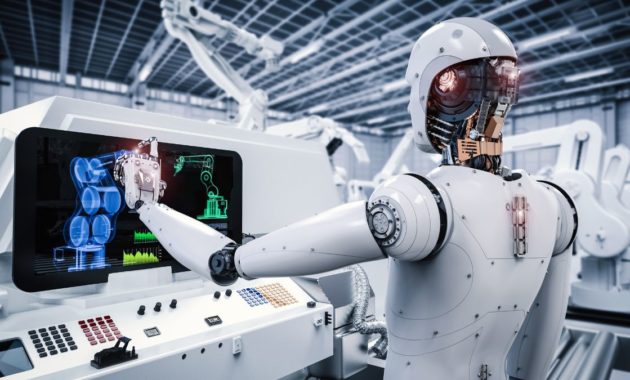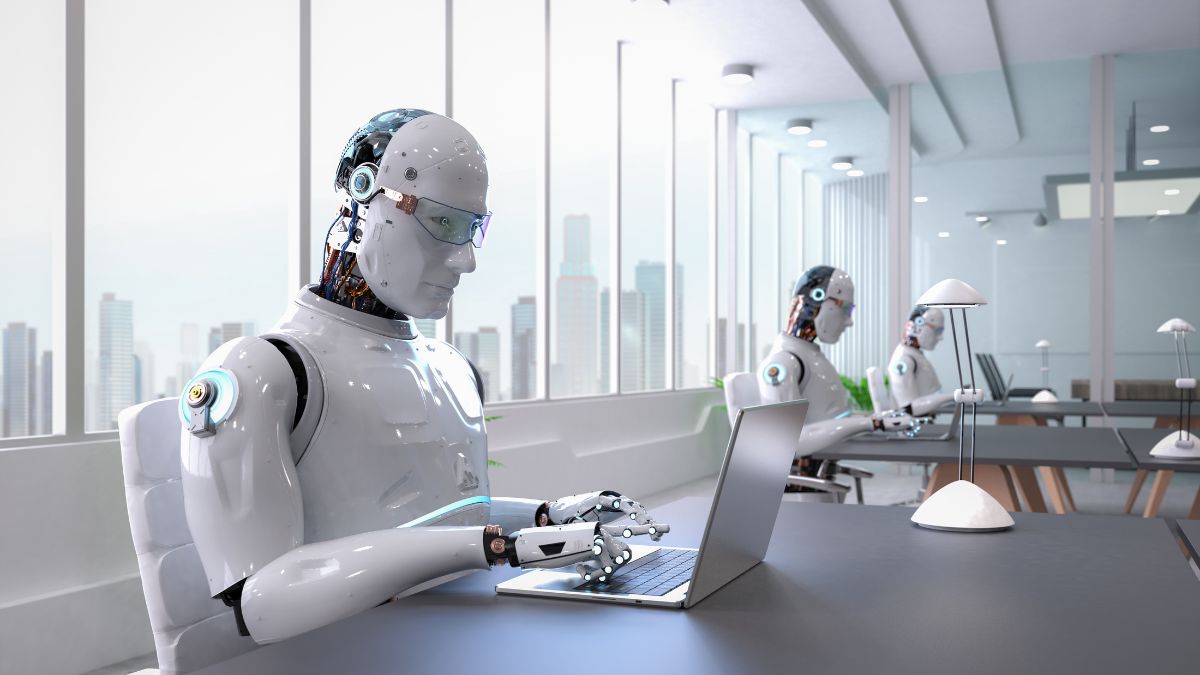Artificial intelligence (AI) is a rapidly evolving technology that has the potential to transform the way we work and live. AI refers to the ability of machines and systems to perform tasks that normally require human intelligence, such as understanding language, recognizing images, making decisions, and learning from data. A
I can augment human capabilities, automate tedious or dangerous tasks, create new products and services, and generate insights from large amounts of data. However, AI also poses significant challenges and risks for the future of work. AI could disrupt existing occupations, skill requirements, and labor markets.
AI could also raise ethical, social, and legal issues, such as privacy, bias, accountability, and human dignity. Therefore, it is essential for organizations, workers, and policymakers to prepare for the impact of AI on the future of work and to ensure that AI is used responsibly and inclusively.
Artificial intelligence (AI) is transforming the world of work in profound ways. From automating tasks to enhancing productivity, AI has the potential to create new opportunities and challenges for workers and employers alike.
In this blog post, we will explore some of the key aspects of how AI could change the future of work, based on recent research and reports from various sources. We will also discuss some of the implications and recommendations for different stakeholders.
AI can replace humans for routine and repetitive tasks

One of the most obvious effects of AI is the automation of routine and repetitive tasks, such as data entry, customer service, accounting, etc. This can free up human workers to focus on more creative, complex, and strategic tasks that require human skills such as empathy, communication, problem-solving, and innovation.
However, automation also poses a risk of displacing workers who rely on these tasks for their livelihoods, especially those with low skills and education levels. Therefore, it is crucial to provide adequate training and education opportunities for workers to reskill and upskill themselves, and to ensure that they have access to social protection and support systems.
AI can enhance human workers’ abilities
Another impact of AI is the augmentation of human capabilities and performance. AI can enhance human workers’ abilities by providing them with insights, recommendations, feedback, and assistance in various domains.
For example, AI can help doctors diagnose diseases, lawyers research cases, teachers personalize learning, etc. This can improve the quality and efficiency of work, as well as increase worker satisfaction and engagement.
However, augmentation also raises ethical and social issues, such as privacy, accountability, trust, and bias. Therefore, it is important to establish clear guidelines and standards for the design, development, and use of AI systems that respect human values and rights.
AI Can Create New Jobs and Industries
A third impact of AI is the creation of new jobs and industries. AI can generate new demand for products and services that did not exist before or were not feasible before. For example, AI can enable new forms of entertainment, education, health care, transportation, etc.
This can create new opportunities for workers to pursue new careers and passions that align with their interests and talents. However, creation also implies competition and adaptation. Therefore, it is essential to foster a culture of lifelong learning and innovation among workers and employers to keep up with the changing needs and expectations of the market.
How AI could affect occupations and skills
One of the main questions regarding AI and the future of work is how it will affect different occupations and skills. According to a report by Goldman Sachs, AI could expose two-thirds of jobs in the U.S. and Europe, and around 300 million positions worldwide to automation from new AI advances. The report also estimates that one-fourth of all work being done could be replaced by generative AI, which can create written content, visual outputs, or audio content that previously required human creativity or expertise.
However, this does not mean that AI will eliminate all human jobs or that humans will become irrelevant in the workplace. Rather, AI will likely change the mix of occupations and skills that are in demand, as well as the way work is organized and performed. Some occupations may decline or disappear due to automation, while others may emerge or grow due to new opportunities created by AI. Some tasks within occupations may be automated or augmented by AI, while others may remain human-centric or require human oversight or collaboration.
Therefore, workers will need different skills to thrive in the workplace of the future. According to a report by McKinsey & Company, some of the skills that will increase in demand due to AI include:
- Higher cognitive skills: such as creativity, critical thinking, problem-solving, decision-making, and complex information processing.
- Social and emotional skills: such as communication, interpersonal skills, empathy, leadership, teamwork, and emotional intelligence.
- Technological skills: such as digital literacy, data analysis, programming, machine learning, cybersecurity, and cloud computing.
On the other hand, some of the skills that will decrease in demand due to AI include:
- Basic cognitive skills: such as basic literacy and numeracy.
- Physical and manual skills: such as physical strength, stamina, dexterity, coordination,
To Adapt to The Chaning Landscape of Work
To adapt to the changing landscape of work, individuals will need to focus on developing and enhancing these high-demand skills. Lifelong learning and upskilling will become crucial to remain relevant in the job market. Organizations and educational institutions should also prioritize providing training and resources for workers to acquire these skills.
1. The role of humans in the AI-powered workplace
While AI has the potential to automate certain tasks and jobs, it is important to recognize that humans still possess unique qualities that cannot be easily replicated by machines. Human creativity, intuition, empathy, and ethical decision-making are essential in many areas of work, such as customer service, leadership, healthcare, and complex problem-solving.
Rather than viewing AI as a replacement for humans, it should be seen as a tool to augment human capabilities and productivity. AI can assist in data analysis, provide insights, and support decision-making, allowing humans to focus on higher-level tasks that require critical thinking and creativity.
2. Creating a responsible and inclusive AI-powered workforce
As AI becomes more integrated into the workplace, it is crucial to ensure that it is used responsibly and ethically. AI systems should be designed to minimize bias, ensure transparency, and prioritize privacy and security. Fairness and accountability should be key considerations in AI development and deployment.
Moreover, efforts should be made to ensure that the benefits of AI are distributed equitably. This includes addressing potential job displacement and providing support for workers in transitioning to new roles or industries. Policies and social safety nets should be put in place to mitigate any negative impacts on workers and promote inclusive economic growth.
3. Collaboration between stakeholders
To navigate the impact of AI on the future of work, collaboration between different stakeholders is essential. This includes cooperation between governments, industry leaders, workers, educators, and researchers. By working together, it is possible to shape policies, educational programs, and workforce development initiatives that prepare individuals for the AI-powered future.
Conclusion
In conclusion, AI could change the future of work in significant ways that offer both benefits and challenges for workers and employers. While it may automate certain tasks and reshape job requirements, it also presents new opportunities for innovation and growth. By understanding and adapting to these changes, individuals and organizations can harness the power of AI to create a more productive, inclusive, and sustainable workforce.
Therefore, to harness the potential of AI for good, we need to adopt a proactive and collaborative approach that involves all stakeholders: governments, businesses, educators, researchers, civil society organizations, and workers themselves. Together, we can shape a future of work that is inclusive, fair, sustainable, and human-centric.
Read more:



